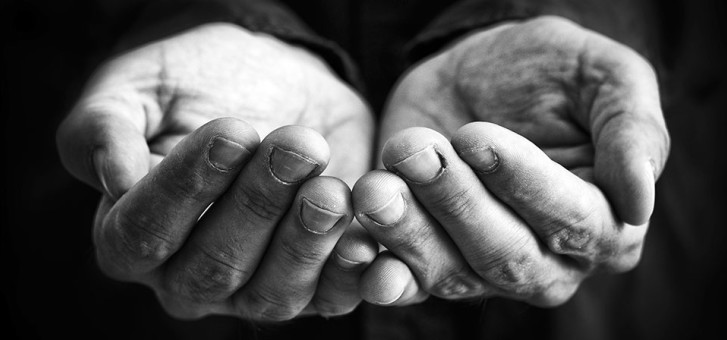Are there limits to so-called “human rights”? Out of Germany last year came a BBC news report of a brother and his sister who are preparing to take their case for the right to marry each other through the courts.
They have already produced four children and are claiming the law unfairly discriminates against them.
So despite the genetic dangers that have seen one sickly child receptive to consecutive illnesses, against outsiders' claims that the laws of nature are being violated, and in the face of protesting (as well as compassionate) voices from the church, the brother and sister intend to correct what they see as a fundamental violation of their human rights.
The case involves a brother who was adopted out as a child. In his search to discover his origins, he succeeded, but fell in love with his newly discovered teenage sister. Their first baby soon followed.
Intervention by welfare and legal institutions failed to dissolve their love.
Imprisonment of the brother also failed.
Unlike the tragic King Oedipus' Theban rule, and whose eyesight took a turn for the worse when he discovered that he had, as seemingly fated by the gods, murdered his father and married his own mother, the German brother and sister want, instead, to celebrate their love for each other. Through the law, the couple now want to overturn their punishments and gain legitimisation for their situation.
Apparently it is the rest of us who need to put out our own eyes.
If society's laws are simply the evolution of humanity as defined by secularevolutionary principles, then why not allow this brother–sister act to marry? What protest could any of us really have if we think of ourselves as just bodies and minds without any divine moral compass implanted in us? Indeed, there will be some in our society who will be at the forefront of wanting to give the German brother and sister their share of human rights. We are, after all, now consenting to the dignity of same-sex “marriage.” And few, if any, are complaining and none are game to do so publicly.
Gay “partnerships” or “legal unions” no longer suffice. Gay “marriage” is now seen as requisite in order to appease the “rights” of those involved despite marriage, in every society and tradition, being (1) a culturally legitimate (2) sexual union (3) of male and female—not just a culturally legitimate sexual union per se. Three necessary and defining characteristics have been reduced to two.
And with incest rights, two will now be reduced even further, to just one (ie sexual union) being deemed sufficient in the eyes of the law.
But here the law will be way out in front of public opinion. For most people, however, incest-avoidance traditions are as old as time itself.
But even where violations occur, no-one in their right mind would consider legitimating them—that would be the end of the race.
Christians are similarly repulsed by the idea of incest marriage. They would call for compassionate discipline to be brought to bear upon the couples involved. We may also wonder where the world of “human rights” (without the anchor of God-ordained responsibilities) is heading.
Humans have rights, without question.
But they are not self-evident; they were championed by Christians based on humanitarian concerns and consciences informed by biblical principles. Hence, progressively over the past 2000 years, Christians have led the way in bringing about the abolition of slavery in Europe, better conditions for prisoners, for mentally impaired persons, improvements for physically challenged persons, toleration for religious minorities, laws against discrimination of ethnic minorities, laws protecting workers' rights and the protection of children from exploitation.
Christian legislators gave the planet its first nation-states, its democratic parliaments, its universal declaration on the rights of persons, its first constitutional charters of rights, its protection for the advancement of science, its doctrines of multiculturalism, its first welfare system, and its freedoms of speech, assembly, movement, religious preference, and political criticism. Christianity has achieved all this.
Now secular-liberalism, the dominant political-philosophical ethos of the age, but itself enabled through Christianstimulated progress, wants to cut itself adrift of its historical roots in the Christian church and put itself forward as the inventor of human rights.
These who care nothing or know little about where their honourable cause has come from, now have at their disposal legislative power to introduce societal changes that militate against the very institutions that shaped it. When voices of protest caution against the extension of rights into spheres or arrangements considered unnatural or anti-God, the secular-liberal cry is one of “What about human rights!” This blind, uncritical consideration is deemed sufficient to bat down traditional religious beliefs, modify all indigenous and Christian behaviours and demolish long-held practices (religious and cultural).
And incest-marriage rights? The German case will give us a clue as to where our world is heading.
There are some who speculate that we may be heading toward a godless pre- Noahic ethos where bestial rights will be ruled within the scope of human rights (how “animal consent” will be determined boggles the imagination!).
We need not slide that far along the slippery slope of rights, but Christians hold to human rights as secondary to divine rights. That is, we are obliged to consider divine principles and norms in shaping and defining our human rights.
Whatever our feelings for each other, they are to be contained within the natural boundaries of healthy and fruitful human development. Love and affection are currents that require thick insulation of Godgiven ordinances of nature and historical precedent. Human relationships come in cultural packages that, not coincidentally, are similarly patterned everywhere.
Regrettably, today's secular-liberals, having demolished the notion of divine rights, necessarily elevate their conception of human rights, so that it becomes a form of “correct” and progressive thinking. And perhaps the day is coming when, despite what the majority may think, none will have legal recourse to protest incest-marriage rights.





